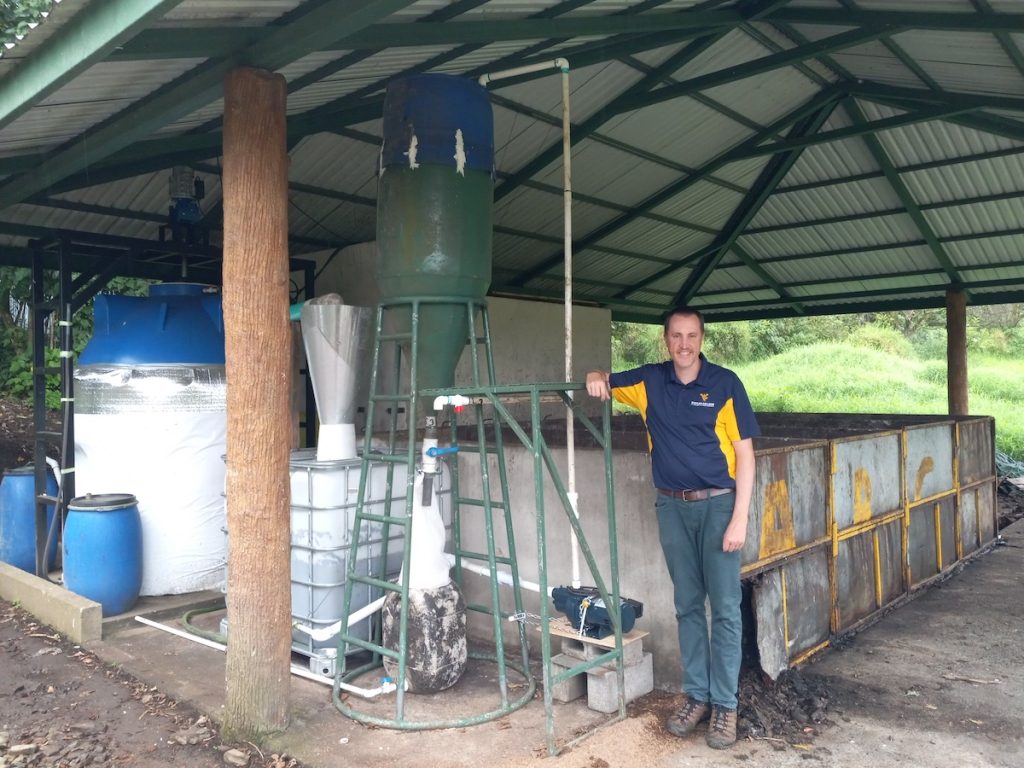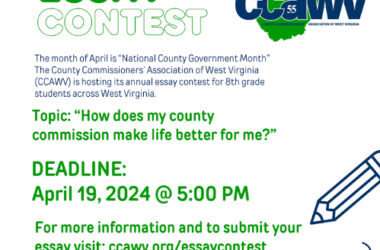WVUToday
MORGANTOWN, W.Va. — West Virginia University students will partner with the ecotourism destination of Monteverde, Costa Rica, to address its stressed sewage problem, which includes undersized and aging septic tanks and untreated water from sinks and washing machines.
During the summers of 2024-2026, WVU graduate students from the Benjamin M. Statler College of Engineering and Mineral Resources will work on multi-university teams of civil and environmental engineers and social scientists, partnering with local water authorities, to conduct hands-on research and investigate different wastewater treatment technologies in the Monteverde region.

Kevin Orner, assistant professor in the Wadsworth Department of Civil and Environmental Engineering, is leading the project with support from the National Science Foundation.
Orner said the research aims to to help students develop global and interdisciplinary skills while teams quantify social, economic and environmental impacts of wastewater treatment and integrated resource recovery in Monteverde.
“Contamination caused by untreated septic tank sludge and wastewater jeopardizes Costa Rica’s tourism-dependent economy,” he said.
Orner said the country has allocated more than $6 million to reduce untreated wastewater, with an emphasis on improving wastewater infrastructure in ecotourism communities. However, smaller municipal governments may lack the capacity to evaluate the environmental impacts, economic costs and other social factors for a plethora of available wastewater technologies.
Even though the Monteverde region is known as an environmental role model, Orner said its wastewater management challenges are acute.
“Ecotourism, primarily in the nearby cloud forests, drives large fluctuations in population,” he said. “Monteverde receives over 250,000 tourists annually, and that’s expected to double by 2050. Buildings utilize septic systems that are often undersized as seasonal populations fluctuate. Many septic systems are failing or provide little treatment prior to discharge. Approximately 70% of Costa Ricans use septic tanks and about 66% of that septic sludge is untreated.”
The local wastewater authority needs solutions that reflect what Orner calls “the triple bottom line” of social, environmental and economic priorities. Additionally, food insecurity among the population drives the authority’s interest in integrating waste treatment with “resource recovery:” safely extracting nutrients, energy and water from sewage and using them to produce biofertilizer and other resources.
Researchers will be tasked with ensuring Costa Rican decision makers can knowledgeably consider an array of options. Those range from decentralized solutions that extract nutrients from wastewater at the level of the individual toilet, to more expensive centralized sewer networks that transport wastewater to large treatment plants.
To make that possible, the students will build a “multi-criteria decision analysis tool” to evaluate Monteverde’s wastewater treatment options. The tool will make a recommendation from among various alternative treatment systems, based on data that students collect and enter into the tool. The data may include economic metrics like a treatment system’s initial and ongoing costs; social metrics like employee training, maintenance time and access to spare parts; and environmental metrics like a system’s carbon footprint, influent and effluent water quality and potential for releasing too many nutrients into local waterways.
In the first summer, students will focus on “decentralized” systems: onsite treatment systems attached to individual buildings, such as a composting toilet or a septic tank connected to a leach field — “the most common wastewater treatment solution in the region,” according to Orner.
Second-year students will research “semi-centralized” systems that serve farms, hotels or clusters of households. For example, they’ll collect data on a sedimentation tank to treat separated blackwater like urine, feces and flush water, used in tandem with constructed wetlands for reuse of separated graywater from sinks, laundry and other sources.
In the third summer, they’ll consider “centralized” systems: a sewer collection system and a wastewater treatment plant.
Throughout all three summers, students will tour Costa Rican wastewater treatment facilities and field sites — dairy farms, coffee farms, a cheese factory — that manage different forms of organic waste. Collaborating with anthropologists to conduct surveys, interviews and focus groups, they’ll gather data from farmers, business owners, households, sanitation managers and others, organizing community events to present their results.
“Costa Rica has plans to improve sanitation access, adapt to climate change and decarbonize — it wants to achieve zero net carbon emissions by 2050,” Orner said. “But 86% of its wastewater isn’t treated properly. Untreated wastewater contains contaminants such as pathogens and nutrients that can harm human and environmental health while distressing economies reliant on ecotourism.
“This research gives WVU engineering students global experience working with social scientists and local stakeholders in Costa Rica, building a decision-making tool that’s based on the social, environmental and economic context of Monteverde and that similar Central American communities could use as they progress toward safe, sustainable water management.”
-WVU-
mm/04/24/23
MEDIA CONTACT: Micaela Morrissette
Research Writer
WVU Research Communications
304-709-6667; micaela.morrissette@mail.wvu.edu
OR
Paige Nesbit
Marketing and Communications Director
Statler College of Engineering and Mineral Resources
304-293-4135; paige.nesbit@mail.wvu.edu





